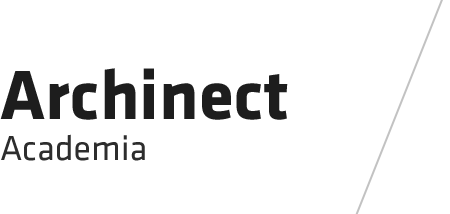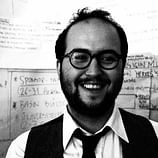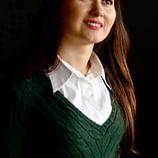
Frankfurt am Main, DE
SAC’s two-year Post-graduate Master of Arts in Architecture is an educational programme engaging with advanced topics in architectural design through individual research and experimentation. Its objective is to contribute to the advance of architecture through the excellence of its graduates. Students are thus prepared for a professional and/or academic career where their individual resources and talents contribute to the development of the field through outstanding practical, intellectual and creative merits. SAC's unique features stem from its relatively small size and the ensuing attention given to each student for his or her personal development as an architect.
SAC’s Master programme builds on a two-year structure, the first of which is common to all students. Upon the completion of the first year, the students choose a specialisation in one of three areas: Advanced Architectural Design, Architecture and Performative Design, and Architecture and Critical Spatial Practice. The second year with the chosen specialisation culminates with the respective students presenting the results of their research and experiments in an architectural project thesis proposal. While SAC’s teaching programme is specifically focused on architecture and architectural design, the students learn through the conduct of research and experimentations a wide array of transferrable skills that they can later apply to a range of professional activities. This responds to the fluidity of the contemporary job market and reflects the crux of postgraduate studies where graduating students are equipped with a broad set of tools to best meet the challenges of an ever-changing professional field.
SAC’s teaching programme is formulated to respond to new developments that concern the future of architecture. In this way, the programme is not static but under constant revision so as to include new pedagogical, methodological, technological as much as other types of developments. In addition, the programme is formulated in accordance to developments in architecture where design and construction processes are becoming increasingly complex, demanding the involvement of a larger number of specialists from different professional fields. These issues intrinsically beg consideration of not only traditional design issues but also how these connect and are transformed through technological developments. SAC selectively assimilates these by focusing on problems in contemporary design, the creative and artistic development of the individual within the collective setting, and material and processing technology.
The teaching at SAC takes full advantage of the programme’s small size and is characterised by individual contact between students and faculty. Particular attention is paid to the personal development of each student with the intention to equip them with the necessary know-how, technical expertise and intellectual abilities to further their careers in an increasingly specialised, international and competitive job market. The programme offers its students the executive ability to take on and process advanced design problems that reflect the complex conditions to which contemporary architecture must respond to and accommodate. These conditions include general technological developments, the direct and intense relationship between socio-cultural structures and economic production, as much as architecture's own accrual of historical and instrumental intelligence. Cultural and social factors contribute to the ever-escalating complexity of designing buildings - a complexity that reflects the standards in Western architecture as a body of theoretical and practical intelligence.
The daily life of SAC consists of bustling studio activities interspersed with numerous collective events taking place on a weekly basis. The relatively small size of the program produces an intense and intimate setting. Visiting lecturers and guests frequently drop in to the studios to discuss the work. The informality of the setting allows for the student work to be reviewed with an incisive yet friendly focus. In the words of SAC's former dean, Sir Peter Cook: "The Städelschule Architecture Class (is) small, perfectly formed, concentrated and genuinely international." This "perfect" form revolves first of all around the personal relations that are formed in SAC - between students, between students and teachers as much as between students and visitors.
SAC believes that the future of the discipline of architecture lies in the full academic embrace and integration of research into its core where the practise of design is yolked with rigorous and systematic research so as to accomplish innovation and contribute to the development of architecture in a larger, societal context. SAC will train and inspire the next generation of architects with the necessary skills and expertise to tackle this new frontier and meet its array of challenges.


Dürerstrasse 10
Frankfurt am Main, DE , D-60596
0049 (0) 69 60 50 08 39